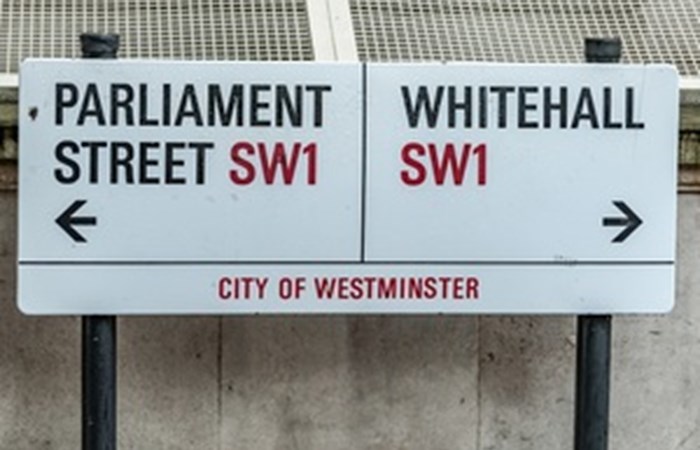Advisory Council On The Misuse Of Drugs

The main findings in the report are as follows:
-
Nitrous oxide remains a widely used drug in non-legitimate settings, particularly by young people.
-
The types of harms caused by nitrous oxide have not changed since the last ACMD report in 2015.
-
The number of deaths and demand for treatment for problematic use of nitrous oxide remains low compared to other drugs.
-
There have, however, been reports of an increase in neurological harms, including nerve and spinal cord damage, related to heavy and persistent use. The availability of larger volume canisters may be linked to higher use and greater subsequent harms in some people who use nitrous oxide.
-
There have also been anecdotal reports of an increase in some social harms such as driving under the influence and littering, although data on these harms are not systematically collected at present.
-
Following a review of the available evidence and a public call for evidence, it is clear that additional measures are needed to reduce the health and social harms of nitrous oxide. These measures should be evidence-based and proportionate.
The ACMD has made 7 recommendations in the report and no single recommendation on its own is likely to be sufficient to successfully reduce the harms associated with nitrous oxide use.
Legislation
Nitrous oxide should remain under the Psychoactive Substances Act 2016, but additional measures are needed to tackle non-legitimate supply and alert people who use nitrous oxide and healthcare professionals to the risks of nitrous oxide use. Current evidence suggests that the health and social harms of nitrous oxide are not commensurate with control under the Misuse of Drugs Act 1971.
Non-legitimate supply
The government should explore approaches to tackling non-legitimate routes of supply, for example:
-
restriction on direct-to-consumer sales
-
restriction on canister sizes that are not found to have legitimate uses
-
restrictions on the volume of sales that customers can purchase
-
restrictions on online sales including associated paraphernalia (e.g. crackers)
-
increased health warning information on packaging
-
closing down websites selling nitrous oxide for non-legitimate uses
Reducing health harms
The government should explore approaches to reducing health harms, including:
-
universal prevention activity for the public, young people and schools
-
information and advice should be made available to the public and in places where nitrous oxide use is more common (e.g. festivals)
-
updated information and advice should be made available to healthcare staff and other organisations who come into contact with people who use nitrous oxide
-
local authority public health teams should work with others to ensure that drug treatment services have the necessary information and resources to support individuals experiencing problems with nitrous oxide
Reducing social harms
The government, police, Trading Standards and local authorities should explore the use of existing powers such as Public Space Protection Orders (in England and Wales), Dispersal Notices and Community Protection Notices. Areas already using these powers should be evaluated.
The government should consider providing additional powers for Police to remove, confiscate and dispose of nitrous oxide canisters and paraphernalia from people intending to use nitrous oxide for non-legitimate uses, including in a vehicle.
The government should explore how nitrous oxide could be added to existing drug driving protocols.
Monitoring health and social harms
The ACMD recommends that the following are systematically monitored across the UK:
-
type, prevalence and severity of neurological and other harms
-
number and type of anti-social behaviour incidents associated with nitrous oxide (including the environmental impact of littering)
-
number of road traffic accidents associated with nitrous oxide use
-
number of deaths associated with nitrous oxide use
Legitimate uses
The ACMD noted that nitrous oxide has many legitimate medical, commercial and industrial uses. The extent and scope of these uses in the UK is currently unclear but is estimated to be large. Before considering any legislative change, the government should undertake a consultation with academia and industry to ensure that disproportionate burdens are not placed on legitimate uses.
Impact review
The ACMD recommends that the government should design a framework for the assessment of the impact of any changes and undertake a formal evaluation of actions further to the ACMDs advice.
Chair of the ACMD nitrous oxide working group, Professor Roger Knaggs, said:
Whilst nitrous oxide has been used for its euphoric effects for many years, there has been an increasing number of cases of nerve and spinal cord damage. This may be associated with the increasing availability and visibility of larger canister sizes particularly over recent months. There have also increasing concerns regarding littering in public places. It is important to act now to reduce these harms.
The widescale recommendations made by the ACMD today aim to address these harms and public concerns, whilst continuing to permit legitimate uses including in the healthcare, food and chemical industries.
Chair of the ACMD: Professor Owen Bowden-Jones, said:
Nitrous oxide remains a widely used drug in the UK. While the number of deaths related to nitrous oxide remains low compared to other drugs, there is evidence of increasing neurological harms in people who use nitrous oxide in a persistent and heavy way and also reports of increasing social harms such as littering of canisters and driving under the influence.
Today the ACMD has made a number of recommendations to tackle these emerging harms including restricting availability, giving local authorities and Police proportionate powers to intervene, and educating people who use nitrous oxide of the harms and how to reduce them.
Tackling any type of drug use requires careful consideration of not just the drug, but the broader circumstances in which drug use takes place. No one intervention will succeed alone, but taken together, we believe that these measures will help to reverse the recent increase in harms, for the benef
